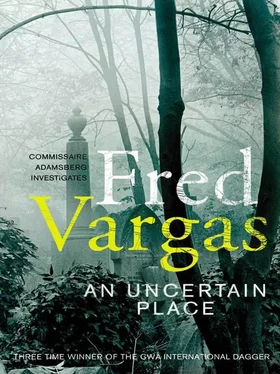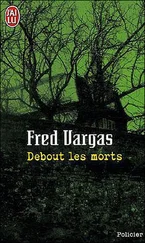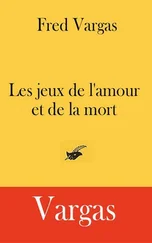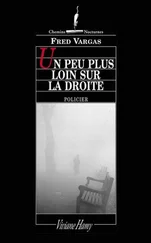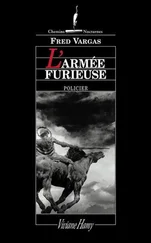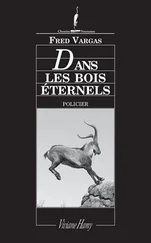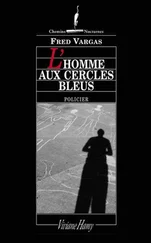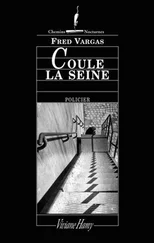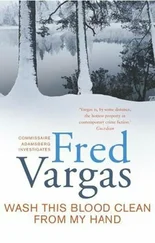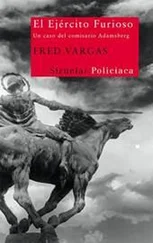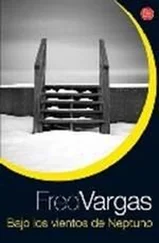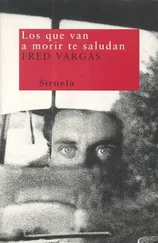‘And who won?’
‘Two times out of three it was him in the end. Because he was really crafty, and he invented this special version, very big, with long pieces of paper. Really hard, you see?’
‘Yes.’
‘So he wanted to go even bigger, but I didn’t.’
‘Did you do a lot of drinking together?’
‘No, just a couple of Guignolets, that was it. But what I’ll miss is the winkles we used to eat with it. He used to order them every Friday, we had a little pin each, mine had a blue top, his had an orange top, never mix them up. He said I’d be…’
Émile rubbed his nose trying to remember a word. Adamsberg recognised this kind of search.
‘Yeah, that I’d be nost-al-gic when he weren’t there no more. But he was right an’ all, crafty old thing. I am nostalgic.’
Adamsberg had the sense that Émile was proudly assuming the complex state of nostalgia and the unfamiliar word to honour it.
‘When you were violent in the past, was it when you were drunk?’
‘Nah, that’s just it. Sometimes I’d have a drink after , to get over it, like. And yeah, before you ask, I seen lots of shrinks, they made me see ’em, like it or not, ten or more. They didn’t know what I was doing it for. They poked about, asking about my parents, father, mother, nothing. I was happy enough as a kid. That’s why Monsieur Vaudel, he used to say, nothing to be done about it, Émile, it’s in your genes. Do you know what that is, genes?’
‘Sort of.’
‘No, properly?’
‘No.’
‘Well, I know, it’s bad seed as comes down to you. So, you see. It wasn’t any point him and me trying to live like other people. It was down to genes.’
‘You think Vaudel had genes too?’
‘Of course,’ said Émile with an air of annoyance, as if Adamsberg was making no effort to understand. ‘But like I said, I don’t know what I’m going to do now.’
He concentrated on cleaning his nails with the end of a matchstick.
‘No,’ he said, shaking his head. ‘He wouldn’t have anyone talk about it.’
‘Émile, what were you doing on Saturday night?’
‘Told you, I was at the Parrot.’
Émile gave a wide provocative grin as he threw away his match. He was no halfwit.
‘Come on.’
‘I took me mother out for supper in this cafe. Always the same place, it’s near Chartres. I told ’em, the cops, the name an’ all. They’ll tell you. I go there every Saturday. And let me tell you, me mum, I’ve never lifted a finger against her. Well, would be the end, wouldn’t it? And me mum, she thinks the world of me. Stands to reason, don’t it?’
‘But your mother doesn’t stay out till four in the morning, does she? And you got home at five.’
‘Yeah, and that’s when I saw there wasn’t no lights on at the house. He always left his lights on all night.’
‘When did you leave your mother?’
‘Ten o’clock on the dot,’ said Émile. ‘Like every Saturday. I went to see me dog after.’
Émile pulled out a wallet and showed a well-thumbed photograph.
‘That’s him,’ he said. ‘Sit in my pocket, he could, like a kangaroo, when he was little. When I was in prison the third time, my sister she said she didn’t want to look after him no more, so she gave him away. But I knew where he was. With these cousins, Gérault their name is, it’s a farm out Châteaudun way. So after supper with me mum, I take me van and go and see him, with dog food and presents and stuff. He knows I’m coming. He waits for me in the dark, he jumps the gate, and he comes and sits all night in the van with me. Rain or shine. He knows I’ll be there. And he’s no bigger than that an’ all.’
Émile held his hands in a shape the size of a child’s football.
‘Are there any horses on this farm?’
‘Gérault, he does mostly cattle, three-quarters dairy, quarter beef. But he’s got a few horses an’ all.’
‘Who knows about this?’
‘That I go see the dog?’
‘Yes, Émile, we’re not talking about the farm animals. Did Vaudel know?’
‘Yeah, he’d never let me have a dog here, but he understood. He let me have Saturday nights off: me mum and me dog.’
‘But Vaudel’s not around any more to back up your story.’
‘No.’
‘Nor the dog either.’
‘Yeah, he ’s around. You come with me any Saturday night and you’ll see I’m not making it up. You’ll see, he’ll jump the gate, and come to the van. That proves it.’
‘No. That isn’t proof you went there this Saturday night.’
‘No, OK, you’re right, but you can’t expect a dog to know which Saturday it was. Even a dog like Cupid.’
Cupid , eh, said Adamsberg to himself.
He closed his eyes, resting against the stone lintel of the doorway, turning his face to the sun, like Émile. Behind the thick wall, the collection of evidence was coming to an end, the platforms were being folded up. The square metres of carpet had been numbered and their contents put in containers. Now they would have to start looking for some meaning in all this. It was possible that Pierre junior might have wanted to kill the old bastard. Or the daughter-in-law, who seemed a strong-willed type, risking everything on her husband’s behalf. Or Émile. Or the family of that painter who covered horses in liquid bronze, and had unfortunately done the same to a woman. Painting your patron in bronze was one more thing that had never been heard of, on Stock’s dark continent. On the other hand, killing an old man with plenty of money had been known about for a long time. But why reduce him to mincemeat and scatter his remains? Why? There was no answer to that. Until you have the reason, you won’t find the man.
Mordent came towards them with his awkward gait, his long neck thrust forward, his grey hair cropped close to his skull, his eye movements rapid, just like a crafty heron on the lookout for fish. He came over to Émile and looked at Adamsberg without indulgence.
‘He’s asleep,’ whispered Émile. ‘Stands to reason, anyone can see that.’
‘Was he just talking to you?’
‘So what, it’s his job, isn’t it?’
‘Yes, of course. But we’re still going to wake him up.’
‘Strewth,’ said Émile bitterly, ‘can’t a man kip for a few minutes without getting a bollocking?’
‘I’m hardly likely to give him a bollocking, since he’s my boss. That’s the commissaire .’
Adamsberg opened his eyes as Mordent tapped his shoulder. Émile stood up, and put some distance between them. He was rather shocked to learn that this man was the commissaire , as if the proper order of things had been disturbed and beggars could become kings without warning. It was one thing to chat about your bad genes and your dog Cupid with an ordinary cop, quite another if he was a commissaire . In other words someone who knew all the sneaky techniques of interrogation. And this one was supposed to be an ace, or so he had heard. And he had just been rabbiting on, and probably saying far too much.
‘Stay where you are,’ Mordent said, holding Émile back by the sleeve. ‘This is going to interest you. Commissaire , we’ve been on to the solicitor. Vaudel made a will three months ago.’
‘Leave a lot of money?’
‘I’ll say. He owned three houses out here in Garches, another in Vaucresson and a big building let out for rent in Paris. Plus about the equivalent in stocks and insurance.’
‘Nothing too surprising about that,’ said Adamsberg, getting up and brushing his trousers.
‘Apart from the legal requirement for the son’s share, he left it all to someone outside the family. Émile Feuillant.’
Читать дальше
